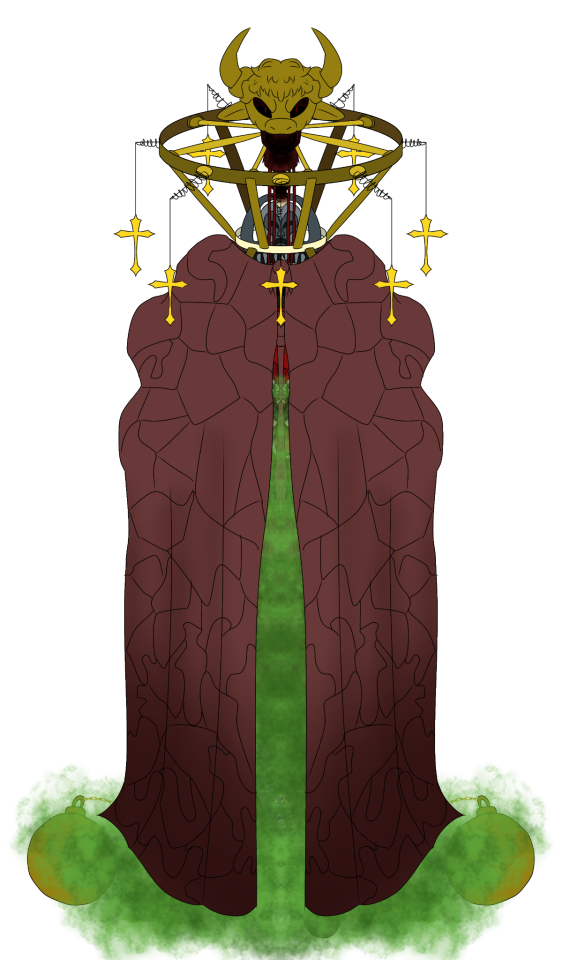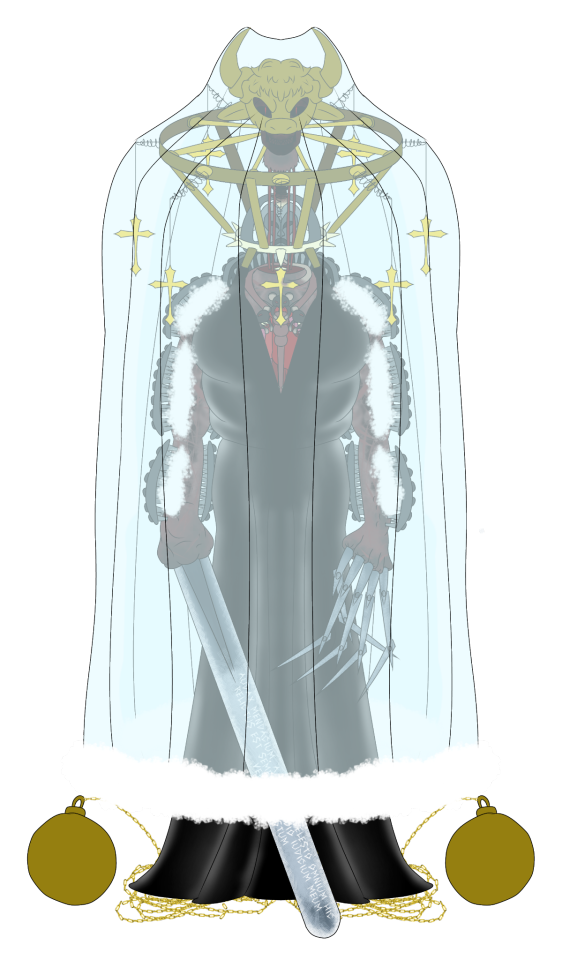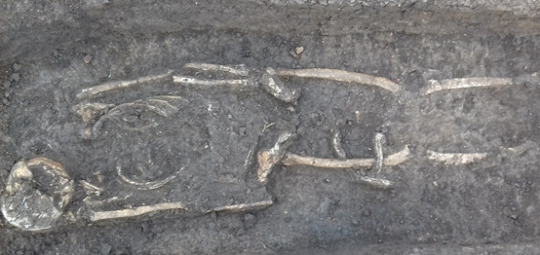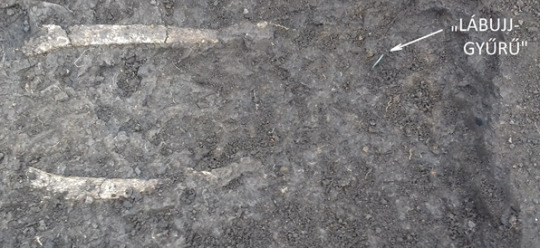#hoc est meum
Text
When we're looking at why Wei Wuxian took so long to even consider that Lan Wangji might really like him, I think we should maybe place more weight on that time when they were trapped in a cave together at around age eighteen, and Lan Wangji told him his dad was dying and started to cry and Wei Wuxian was like SHIT and fidgeted awkwardly for a while like ahhhhh I hate when people cry especially men what do I do????
And then he tried to find something to say and Lan Wangji was like 'shut up' and he shut up, and Lan Wangji said 'you're a loathsome person' and he shut up so hard he left him alone for three entire days.
Like if I spent three days trapped in hell with someone, restraining myself from reaching out for human interaction because not subjecting them to my personality was literally the only thing I could do to help with their state of misery.
I would have a real hard time letting go of the understanding that the thing this person wanted from me was not to have to deal with me.
322 notes
·
View notes
Note
I would die for baby Stephanie 🥺 especially with her making friends with Bruce. I love it!!! (Til-then story)
ahhhhh thank you for reminding me 13yo bruce and stephie's friendship is one of my favorite things in that fic! i love them.
i didn't see them coming at all but once they bonded over being the relatively normal kids in a room full of Robins (while still being violent little maniacs in their own right) i was like oh you're perfect 💖🤣💕
0 notes
Text
34. This is My Body by Jorge Sanchez Hernandez
Jorge Sánchez Hernández [1926 – 2016] was a Mexican Catholic painter and continuator of the style of 17th century Spanish Baroque painters. Collections include: Portraits of Colonial Nuns; Scenes from Ancient Mexico; the Sor Juana Inés de la Cruz Collection; the Mother of Jesus Collection; the Gospel Scenes Collection; the Collection with scenes from the story of Our Lady of Guadalupe; and…

View On WordPress
7 notes
·
View notes
Text
Something that has a mamoshes vi der goyisher got [the substance of the Christian god] can also be said to be nisht geshtoygn un nisht gefloygn, it didn't climb up and it didn't fly. Any Jew who grew up in a traditional Yiddish-speaking environment will interpret the phrase in pretty much the same way: what didn't climb or fly was Jesus, who didn't climb to heaven and who sure didn't fly there. There's a variant interpretation, according to which it's the cross that Jesus didn't climb, but this has no effect on the meaning—the climax of all four gospels, the point of the New Testament, has just been reduced to a joke, the Yiddish equivalent of “and pigs can fly.”
While the denial of Jesus's divinity would be offensive enough to Christians, its use as the gold standard of unbelievability makes it dangerous for a non-Christian minority. The very existence of such a phrase tells us most of what we need about how and why Yiddish came into being and why it was never really German. Each individual word of nisht geshtoygn un nisht gefloygn would be comprehensible to a German-speaker, but it's unlikely that the German would ever guess what it really refers to, even if he or she caught the meaning of “bullshit.” And that's the point: Yiddish started out as German for blasphemers, a German in which you could deny Christ without getting yourself killed any more than necessary. From day one, once they started to speak “German” to one another, the Jews were speaking German aftselakhis, a German to spite the Germans, a German that Germans wouldn't understand—the argot of the unredeemed. Don't think of Yiddish as a union or melding of German and Semitic elements; think of it as a horror movie. Think of Hebrew as an aristocrat with a funny accent, a mysterious old language no longer used in conversation, the linguistic equivalent of the Undead. It needs body and blood to return to spoken life, the body and blood of a living language, that can be taken over and put to use in service of the Jewish brain. It wants to take over German and then say, Hoc est mamesh corpus meum, in a parody of transubstantiation.
Born to Kvetch by Michael Wex
#me going to shul for the first time in a while and remembering that i don't usually like davening that much: time to go to the library#and reread the first 20 pages of born to kvetch#maybe someday ill read further#jumblr#jew tag#txt#ייִדיש#100
829 notes
·
View notes
Text

“Ut supra, sic infra. Superiori me totum imperium nunc dedo.
Ut foris, sic intus. Amor aeternus erit mihi lacus; perpetuus hymnus meus.
Ut universi, sic animus. Pulsatio cordis mei pulsum universi aequabit; hoc est, mea vita meta.
Sit corpus meum verum corpus animae meae. Haec affirmatio mea est; Haec erit mihi maxima manifestatio.”
“As above, so below. To my higher self, I now surrender all control.
As without, so within. Love will be my eternal mantra; my constant hymn.
As the universe, so the soul. My heartbeat will match the beat of the universe; this being my lifetime goal.
May my body become the true embodiment of my soul. This is my affirmation; this will be my greatest manifestation.”
34 notes
·
View notes
Text
Da Te Mihi Totum
Lay All Your Love On Me
secura ante te obvium
nunc in puellis video periculum
invida sum, est flagitium
dixi mi esse unum modo vitium
immo nunc deterior
novis rebus capior
et firma mens everta est
a te precor
noli perdere affectum
da te mihi totum
ut anas sedens impetitur
cor meum verbis, risu tuo capitur
adhuc quid accidat nescio
femina grandis quomodo hoc sentio?
paene paveo
cum te non habeo
et inexpleta, humilis
tete oro
noli perdere affectum
da te mihi totum
noli studium partire
da te mihi totum
scivi amores iam parvulos
neque frequentes quidem nec diutinos
et hanc putabam prudentiam
nunc verum meam implicavit animam
nam omnia nova sunt
ad te me adducunt
ac quicquid scio eversum est
quae supersunt?
noli perdere affectum
da te mihi totum
noli studium partire
da te mihi totum
noli perdere affectum
da te mihi totum
noli studium partire
da te mihi totum
noli perdere affectum
da te mihi totum
8 notes
·
View notes
Text
Alastor designs








The first sword says, "Hoc ferrum solos peccatores asserit sumpsisse. Quid si innocentes fuissent?" He claims that only sinners took this iron. What if they had been innocent?
The second says, "Audax mendacium, a maximo scelesto omnium hic relictus est semel. Nunc scio iudicium meum verum et iustum" A bold-faced lie, once left here by the greatest villain of all. now I know that my judgment is true and just
#fnaftale#underverse#fnaf au#undertale au#underfazverse#alastor#demon#no lore this time bc lazy#it's in the doc if you wanna read it#check pinned post
2 notes
·
View notes
Text
VENI DENUNTIATIONE!
Ericius Obscura mus putidus est; et minxit super meam uxorem! Sic, instrumentum suum arripiens et uxore mea usus est. Et dixit "hoc magnum", et dixi “foedum”.
Crimina igitur in hoc foro annuntio.
Ericius Obscura! Instrumentum parvum habes. Eadem magnitudine est cum hoc nux, sed etiam modo minor.
Et vis videre quid simile instrumentum meum?
BFNFFNMFFMMM
Sic! Tota acus, nulla cervicalia; spectat ut duo pila et tibia.
Ita futuit meam uxorem quid suspicari? Im 'agnus futuis Terram! Sic: hoc est quod habes!
MEA ILLUSTRIS URINAE!
Sed non sum agnus perdendi Terram, altiorem ibo...
URINAM IN LUNAM SUM!
Quid tibi placet, Caesar?! Lunam texi, stulte!
Habes 23 horas ante meum L I Q U I D U M percusserit Terra! Egredere e conspectu meo, priusquam eadem faciam tibi.
11 notes
·
View notes
Text
youtube
Case #02 - Hoc Est Corpus Meum - Pt. 1
Best listened to with headphones. Enjoy.
3 notes
·
View notes
Text
Ásatási élménybeszámoló blogger-stílusban
Október elején néhány múzeumi munkatárs azt a megtisztelő feladatot kapta Szolyák Péter igazgató úrtól, hogy a régészeti osztály kapacitásának leterheltsége miatt pár napot a bükkábrányi feltárás helyszínén segítségére legyen az ott dolgozó kollégáknak a mindennapi munkában. Békési Gábor és Szabó Attila október 3-7. között csatlakozott a bükkábrányi régészcsapathoz. Az ott szerzett élményeket dolgozza fel Szabó Attila beszámolója, amely „nyomokban tartalmaz” valóségelemeket is, de inkább hangulatokat, gondolatokat rögzít.
1. Csincse
Öten ülünk a múzeumi terepjáróban. Három régész – és két alkalmi régészsegéd. A bükkábrányi ásatási helyszínhez vető út Vattán át a Csincse felé vezető út felől közelíthető meg. Csincse, Csincse… Hát persze! Vikár Béla!

A Kalevala fordítójaként is ismert Vikár Béla elsőként használta az 1877-ben megalkotott Edison-féle találmányt, a fonográfot néprajzi gyűjtés rögzítésére. Az új gépezetet Amerikában megkísérelték felhasználni az őslakosok körében végzett nyelvi gyűjtésre, erről az Ethnographia is tudósított 1891-ben, de folklórgyűjtésre hitelt érdemlően elsőként ő alkalmazta, 1896-ban éppen Csincsén (Csincsetanyán)!
A folyamatos falujárás, vonaton, lovas kocsin az 50 kg-os fonográffal – elképzelni is nehéz a százhúsz évvel ezelőtti gyűjtőmunkát. Mindehhez a munkához átlagosnál nagyobb teherbírásra volt elengedhetetlenül szüksége, no meg monotóniatűrésre, kellő testi-lelki energiára, illetve olyan hivatástudatra, amelynek mibenlétéről manapság azok tudnak érdemben beszélni, akik pl. régészetre adják a fejük…
A leletekhez vezető út - vízszintes és függőleges irányban egyaránt – a régész kitartását, szakmai alázatát teszi naponta próbára. Amolyan Bartók- és Kodály-féle emberek ők is, csupán a felszereltséget tekintve tettek szert némi komfortelőnyre: a szekeret terepjáróra cserélték, a fonográfot pedig drónra…
2. Látjátuk feleim szümtükhel…
Anzelm testvér, akit elöljárója Boldváról Csincsére küldött missziós feladatot ellátni, álmatlanul töltötte az éjszakát: elméje és lelke megsínylette azt az ádáz vitát, amelyet a helyi kuruzslóval folytatott előző este. A „táltos” váltig hangoztatta, hogy a hosszú aszályt felváltó termékeny eső az ő vajákos cselekményének a gyümölcse. „Hogyan is nevezhetném szent rítusnak az esőcsinálás végett produkált artikulátlan üvöltözést és vonaglást, melyhez foghatót csak olyan ember kénytelen elszenvedni, kit tarantellapók csípett meg?” – morfondírozott magában Anzelm testvér. Régóta nyomasztotta az a gondolat, hogy az Úr végtelen nagy irgalmában megtűri az anyaszentegyházat érő folyamatos gyalázatot. Fülében csengtek a táltos szavai: Te csak fohászkodj Istenedhez, mormold a hókuszpókuszt, én esőt csinálok! Hókuszpókusz…? Jóllehet meglehetősen gazdag volt magyar szókincse, ezzel a kifejezéssel nem találkozott eddigelé. „Alighanem az eucharisztia szereztetési igéjét gúnyolta ki a kurafi táltos: Hoc est corpus meum! Igaza van Bernát testvérnek, a nép nyelvén kell az igét hirdetni…” – tűnődött Anzelm testvér, majd számba vette aznapi szent kötelezettségeit. Matutinum - letudva, laudes – félálomban abszolválva… Délelőtt temetés. Összesen négy. Egy hajadon, két asszony, egy özvegy…

„Milyen sekély sírokat ásnak ezek az asszonyok! Tudomásom szerint a sírásásra fogható férfiak most éppen az úzok ellen vonultak, így csak a fehér- meg az aprónép maradt otthon. A gyönyörű 23. zsoltárral fogom búcsúztatni őket: „Nam et si ambulavero in medio umbrae mortis non timebo mala quoniam tu mecum es…” Kár, hogy egy kukkot se értenek belőle… Aztán a Bernát testvértől tanult sermo super sepulchrum következik, amelyet Isten dicsőségére mától fogva nem latinul, hanem magyarul fogok elmondani a halott felett. Csak meg ne tudják a boldvai tudós atyák…”
3. Sic transit gloria mundi…
Egyre szakszerűbben végzem a feltárási munkát, az eredetileg rám bízott félbevágott-pillepalackkal-gödörből-esővizet-kilöttyinteni feladatot summa cum laude teljesítettem, miáltal jogot formálhattam nagyobb szakmai presztízzsel bíró feladat ellátására: fejest ugrottam a mélyvízbe…

Ingujj feltűr, ásót a kézbe. Tíz perccel később: leguggol, kislapátot előkap. Újabb tíz perc: letérdel, behajol a sírba, spaklival végez finommotorikai mutatványt, és egyszer csak karc! Hoppácska! Bűvös szó fakad ajkaimról: melléklet! * Egy bronzkarika! Ez csakis lábujjgyűrű lehet! A sírban talált s-végű karikáknak se szeri se száma, de ezek hajdíszek, gyűrűk, egyéb felsőtesti viselmények! Az én síromban található karika viszont viselettörténeti szenzáció! Világraszóló áttörés a kora Árpád-kori életmódkutatásban! Lábujjgyűrű!

Felvillanyozó leletkülönlegesség a feltárt sírok hervasztó egyformaságában! Bódultan sütkérezem a hirtelen rám szakadó szakmai sikerben, és mint a régésztársadalom életébe üstökösként berobbanó titán már látom is az ásatásvezető (vagy az akadémia elnöke?) által vezetett régészdelegációt, amely lerója háláját a lábujjgyűrű bravúros feltárása nyomán óhatatlanul bekövetkező tudományos paradigmaváltás elindítója előtt – amikor is a mindig-mosolygó Antónia hirtelen megáll mellettem.
Szavai hét tőrként járják át lelkemet.
„Az ott egy hajkarika, amelyet a sírba bejutó rágcsáló odébb kotort.”
Csak ülök szárnyaszegetten, fél lábbal a sírban (szó szerint veendő!) és nézek ki a fejemből hosszú percekig. Sic transit gloria mundi – mondaná Anzelm testvér, ha itt ülne mellettem. Látjátok feleim, mik vogymuk? A siker csúcsáról a mélybe hulló senkik vogymuk.

4. A hiányzó darab
„És képzeld, föladtam a küzdelmet – beletörődtem abba, hogy a hiányzó darabot sose találom már meg!”
Akaratlanul is fültanúja voltam a bizalmas beszélgetésnek, mert az én sírom mellett álltak. A régésztechnikus zavartan paskolgatja a vállán zokogó kolléga hátát, az egyenpufimellény** pedig jellegzetes püff! püff! hangot bocsát ki. Feladta a küzdelmet? Istenem, tipikus régészsors! A hivatás teljes elköteleződést kíván, nincs a szakmája iránt lanyha érdeklődést tanúsító régész. Milyen emberfeletti kínokat kell kiállnia szegénynek, amikor éjt nappá téve kutatja, keresi a hiányzó darabkát, a csonka leletet egésszé – vagyis tökéletessé – tevő részletet! Ezért az egy darabért a régész kész tűzbe menni, képes leásni a Marianna-árok legmélyére, szent megszállottsággal, akár élete árán is! De mi van akkor, ha a kudarcélmény súlya alatt összeroskad? Ha nem tudja újrakezdeni? Vagy ne adj’ isten bedobja a törölközőt (pl. az ásatási gödörbe)? Hát, a régész is emberből van, nem róhatjuk fel neki, ha aláveti magát a sors akaratának… Most éppen egy ilyen szomorú esetnek vagyok tanúja.
Azon tűnődtem, ilyenkor illik-e részvétet nyilvánítani, amikor a vallomás folytatódott:
„És képzeld, azt mondja a fiam, a kisteszkóban még kapható a limitált széria, próbáljunk szerencsét! Mint az őrült, ki letépte láncát, nyargaltam a kisteszkóba, és megvettem mind a tíz kindertojást, és az egyikben OTT VOLT A HIÁNYZÓ KENGURU!!! Most már teljes az Ausztrália-gyűjteményem! Komplett a két Amerika, az Eurázsia, jövő héten dobják piacra a húsz állatot tartalmazó Afrika-sorozatot… A zsiráf állítólag nagyon ritka lesz!
Szabó Attila
*utóbb elmagyarázták, hogy a hajkarika nem tekinthető mellékletnek, mert a viselet része, tehát a csontvázhoz tartozik.
**jellegzetes régészruhadarab.
#hermanottómúzeum#homregeszet#miskolcimúzeum#régészet#regeszet#miskolc#múzeum#feltárás#külsősszemmel#rólunkírták#magyarrégészet#ásatás
26 notes
·
View notes
Text
Okay so, got here from a book on animal behavior but: Vulcan stand-up comedy as a competitive activity.
Because most Vulcans don't actually pretend they don't have emotions, it's all about self-regulation, right? And good comedy usually hinges on manipulating the relationship between our faculties of recognition and surprise in various ways, you can get pretty scientific with it.
So Vulcans go to the comedy act, and the idea is the comedian is trying to make you crack up, and the audience is trying to not even crack a smile, and if you do laugh, you lose. Like all in good fun, but Vulcans are both really competitive and really aware of how dangerous that urge can be to a society, so this could actually be classified as highly orthodox Surakian practice.
So of course the comedian has to actually be funny, or there's no challenge and the game is boring.
Which means the really good Vulcan comedians (most of whom tend to extremely dry delivery of their bits) are going to go around playing to packed houses, which mostly sit staring stonily back at them, with occasional breaks when someone loses it and reacts.
And after a show you'll have Vulcans walking out discussing with great approval how very humorous that was, with varying degrees of muted smugness or chagrin depending on if they won or lost.
I bet there are human comedians whose grandest fantasy is being good enough to do a set in Vulcana Regatta and have people going around bragging about not laughing at them.
12K notes
·
View notes
Text

In der Wanne seiner Macht
Rubens malt Seneca in der Wanne (einem kleinen pool) seiner Macht, einem Bottich. Seneca steht da, die Knie sind nicht durchgedrückt, er ist leicht gebeugt . Er steht da in entfernter Ähnlichkeit zu dem berühmten Schwimmer auf der Staatstafel 79 von Aby Warburg.
Dieser Schwimmer, der auf Tafel 79, steht nicht in der Wanne seiner Macht, sondern in der Wonne seiner Macht. Er präsentiert sich mit mit stolz aufrechter Haltung, das Hamburger Fremdenblatt nahm das zum Anlaß, das Foto des siegreichen und preiswürdigen Schwimmers sogar über dasjenige eines im und am Möbel knienden Papstes zu montieren, es also oberhalb des anderen Fotos und das Photos des Papstes vom Fronleichnamsfest teilweise überdeckend zu platzieren. Die Technik ist normativ, das ist ein Schichten, eine Weise stratifikatorischer Differenzierung. Die Hamburger, Protestanten, so sinze! So sieht das Detail auf den Staatstafeln aus:

Das ist eines der bekanntes Details von Tafel 79. Es ist eines nämlich eines der wenigen Details, die Aby Warburg selbst öffentlich kommentiert hat. Bei einer Doktorandenfeier [sic!], dem Ende des betreuten Promovierens, hat er diese Stelle mit einem Witz kommentiert, der durch eine Pathosformel funktioniert, also durch den Verkehr einer Formel. An dieser Stelle, so Warburg, würde aus dem Hoc est corpus meum der Kommunion das Hoc meum corpus est des modernen Menschen. Horst Bredekamp hat darum einen ganzes Buch angelegt, das Buch über den schwimmenden Souverän, Pflichtlektüre der prinzipiell kleinen Staatsrechtslehrer.
2.
Damit ist das Thema alles andere als erledigt. Die entfernten Ähnlichkeiten bleiben nämlich immer. Es bleiben Ratgeber des Souväns in der Entfernung und es bleibt in der Entfernung die Möglichkeit, dass wieder einmal ein o mit einem a verwechselt wird und aus der Wonne der Macht eine Wanne der Macht wird.
Was dann? Seneca lesen, De providentia zum Beispiel. Viel davon lesen muss man nicht. Antike Literatur hat den Vorteil, stellenweise zu sein: Man muss nur eine kleine Passage lesen, die ist ohnehin schon 2000 Jahre verkehrt und faltig geworden. Ich schlage folgende sekundäre Passage vor, also die in den Editionen mit Nummer 2 markierte Passage aus De providentia, weil sie De providentia als Beitrag zur vergleichenden Meteorologie vorführt und damit die sekundäre Passage schlechthin ist:
Supervakuum est in praesentia ostendere non sine aliquo custode tantum pos stare, nec hunc siderum coetum discursumque fortuiti impetus esse; et quae casus incitat saepe turbari et cito arietare, hanc inoffensam velocitatem procedere aeternae legis imperio, tantum rerum tarre marique gestantem, tantum clarissimorum luminum etex disposito relucentium; non esse materiae errantis hunc ordinem, nec quae temere coierunt tanta arte pendere ut terrarum grauissimum pondus sedeat immotum et circa se properatnis caeli fugam spectet, ut infue vallibus maria molliant terras nec ullum incrementum fluminum sentiant, ut ex minimis seminibus nascatur ingentia.
3.
Hausaufgabe: Diese Passage, sie ist nur ein Satz, übersetzen. Laufzeit: 30 Jahre. Kosten: keine. Die Antike lebt nach, in allem dem, was hier übersetzbar ist und das sich doch als erstaunlich dichte Fassung einiger aktueller rechtsphilosophischer und rechtstheoretischer Fragen gibt. Was ist ein Supervakuum, seit wann reicht es dem Vakuum denn nicht mehr, Vakuum zu sein?
Justus Lipsius ist einer aus der Geschichte des öffentlichen Rechts, der Regierende und Maler beraten hat, er war ein Senecaleser und Ratgeber von Rubens. Eventuell hat er dem Rubens dieses Bild empfohlen. Unter Rechtstheorie und Rechtsphilosophie kann man bei Lipsius sowohl die Lektüre entfernter Texte als auch den Rat zu Bildakten verstehen. Bildung ist bei Lipsius sowohl praktisch als auch theoretisch, Bilder sind das auch - wie etwa das Bild von Seneca in der Wanne seiner Macht. Ihm wird gerade auf Vorschlag von Kaiser Nero seine Hauptarterie aufgeschnitten, er soll auf Vorschlag von Kaiser Nero verbluten und sterben in der Wanne dieser Macht, etwas zwanghaft unentschieden sagt man, das sei ein erzwungener Selbstmord gewesen. Das Bild hängt natürlich auch heute in einer Staatsgemäldesammlung, der Pinakothek in München, wo sonst?
2 notes
·
View notes
Note
Why did Martin Luther reform the church?
Okay, you asked for it.
I’m going to try to do this bullet-point style for the sake of organization, because I know I invited you to ask about this, but at the same time. Man, what a question. This will be long-ish. Others, please feel free to correct me or add on if you like.
Martin Luther was not by any means the first person to observe the problems of medieval Catholicism, nor was he the first to attempt reform. John Wycliffe, Jan Hus, and others should be given their due, even if they did not set off a Reformation the way Luther did.
By God’s providence, Martin Luther and the newly-invented printing press existed in Germany at the same time. It is for that reason that he, not another, is the father of the Reformation.
Okay, so Luther. Martin Luther was the most scrupulous kind of monk, bordering on madness in his obsession with God’s holiness and his own sin. Yet after a trip to Rome in 1510, he found himself increasingly cynical about the cheap, transactive way in which he saw Christianity being practiced. Have you ever gone into a megachurch and had the horrifying realization that it had a gift shop? That feeling, but way worse.
Do you know where the magic words Hocus Pocus come from? Catholic Mass was said in Latin and the people, of course, didn’t understand a word of it. Even the clergy frequently found that learning the service rote was quicker than learning a whole new language. Thus, when the priests speaking Latin presented the bread for Communion and spoke the words Hoc est corpus meum, parishioners heard “Hocus pocus” and thought that the words themselves had some kind of power.
Luther’s experience in Rome led to a personal study of Scripture during which he found what would become the seeds of Reformed theology. It wasn’t fully formed yet, but it was definitely growing in his heart, so to speak. The bun was in the oven.
Johann Tetzel was like the P.T. Barnum of his day, or maybe a really sleazy televangelist. His job was to raise money for the Pope’s new basilica by selling indulgences. This involved ad jingles (“♫When the coin in the coffer rings, the soul from purgatory springs ♫”), overwrought sermons (“Can’t you hear the voices of your wailing dead PARENTS?????”) and even haggling over price.
Luther was not okay with this.
You can read the Ninety-five Theses here in their entirety. It’s a short read; each point is about one sentence long. It builds an argument against the way indulgences were being sold and it's s a great bit of argumentative writing, even putting aside the historical and theological importance. You should totally read the whole thing if you’re at all interested. However, I will pull some highlights here:
1. When our Lord and Master Jesus Christ said, ``Repent'' (Mt 4:17), he willed the entire life of believers to be one of repentance.
37. Any true Christian, whether living or dead, participates in all the blessings of Christ and the church; and this is granted him by God, even without indulgence letters.
49. Christians are to be taught that papal indulgences are useful only if they do not put their trust in them, but very harmful if they lose their fear of God because of them.
62-64. The true treasure of the church is the most holy gospel of the glory and grace of God. But this treasure is naturally most odious, for it makes the first to be last (Mt. 20:16). On the other hand, the treasure of indulgences is naturally most acceptable, for it makes the last to be first.
94-95. Christians should be exhorted to be diligent in following Christ, their Head, through penalties, death and hell. And thus be confident of entering into heaven through many tribulations rather than through the false security of peace (Acts 14:22).
It’s important to note that Luther posted the Ninety-five Theses on the church door of Wittenberg in an effort to be a good Catholic. This was not originally an act of protest; it was a civilized list of topics for discussion written in Latin. And, honestly, while the Theses did cause a stir, they absolutely could have blown over pretty quickly had Luther not, in writing them, basically been led head-first into a completely different understanding of Christianity.
To quote the man himself, “God led me into this business against my will and without my knowledge.”
What a mood, honestly.
Johann Tetzel was understandably ticked off that Luther had made him and his line of work out to be so sleazy. (I mean they were, but like...) He ran his little temper-tantrum up to his superiors, which through a long series of Church Politics, ended up with Luther famously debating Johann Eck in 1519.
Eck was a kind of a slippery debater, but he actually did the Reformation a big favor in the long run. He succeeded in expanding the issue from “Is the whole indulgences situation chill or not?” to “Who has the final authority: the Bible or the Pope?”
Luther said, “The Bible, duh.”
The Pope got a little mad at Martin Luther. However, for the moment, it still wasn’t a super big deal. Luther was just one guy, after all.
More importantly, the fact that the question of Papal authority was raised also got Luther thinking, “hey, that’s right! This whole Pope situation is kind of BS, isn’t it?”
Around two years after posting the Ninety-five Theses, Luther finally had something like what we might call Reformed theology. It was missing a bunch of stuff, but the important stuff was there. God doesn’t want us to be perfect, He wants us to trust Him. Sola fide. Sola gratia. Solus Christus. Sola Scriptura. Soli Deo gloria.
Naturally, Luther started writing a bunch of stuff.
A whole, whole bunch of stuff.
He got away with it for a while! But after a while, enough was enough and the famous papal bull excommunicating Martin Luther from the Catholic Church was issued.
Luther burned the papal bull and wrote a response: Against the Execrable Bull of Antichrist.
(Just a reminder that the Martin Luther Insult Generator exists and it’s awesome)
Luther got summoned to the Diet of Worms to stand trial. He faced down the HRE, the pope, burning at the stake, and the prospect of hell if he was wrong. “Here I stand. I can do no other.” He refused to recant.
I wish I could go on to talk about the rest of Luther’s life, about Zwingli and Calvin, Bucer, Knox, Cranmer, Cromwell, Chemnitz, and so many others. I wish I could talk about the extraordinary courage of the ordinary people who became martyrs of the Reformation. People who staked everything—their careers, their families, their very lives—on the fact that in the Reformation, the very soul of the Gospel was at stake.
In conclusion, Martin Luther was a badass and the Protestant lineage of which we are a part is absolutely glorious.
Fun fact: on the way back home from the Diet of Worms, Luther staged his own kidnapping
#this turned into a super long history lesson sorry#i slipped and wrote two pages on Martin Luther#no one is making me do this#it is not for a class#i had an awesome time#...why am i like this?#the unquenchable fire#unquenchable i say!#ask me hard questions
20 notes
·
View notes
Text
Blood and Bodies
Hoc est enim corpus meum.
He serves Mass every Sunday. Mostly no one comes. He breaks the bread and pours the wine and says the words: bread and wine become flesh and blood of Christ. A weekly miracle, expected, unwitnessed.
Hic est enim calix.
He does what he can. He brings an X-ray or holds a scared boy's hand or finds a grenade pin: prays for the broken bodies to live, for skill in bloody hands: for the living, for the dying, for the dead. He asks for daily miracles.
Ite, missa est.
Miracles happen, whether or not they're witnessed.
9 notes
·
View notes
Text

Sicut diabolus aeternus Est, ita unus est. Omnis Daemon est dominus eius. Diabolus ab omnibus me abscondit. Non quia misericordiam patitur. Et quod suus ' negotium meum, Sed Eius-quod iustum est! Quisquis hoc modo negotium agit, sub ala vivit. Ego vivo, et vos vivetis. Amo, quia caro est. Non una sagitta vel falcata me feriet. Diabolus omnia a me auferet!
Amen.
5 notes
·
View notes
Text
Salvete omnes!
Meum nomen Pirevita est. Hoc meus primus nuntius est. Hic de negotiis meis nuntiabo. Legere, studere, musicum, artes mathematicae, linguas et scribere amo.
Ordo aberit...
Hello everyone!
My name is Pirevita. This is my first post. I will post here about my hobbies. I love reading, studying, music, maths, languages and writing.
Order shall be absent...
6 notes
·
View notes